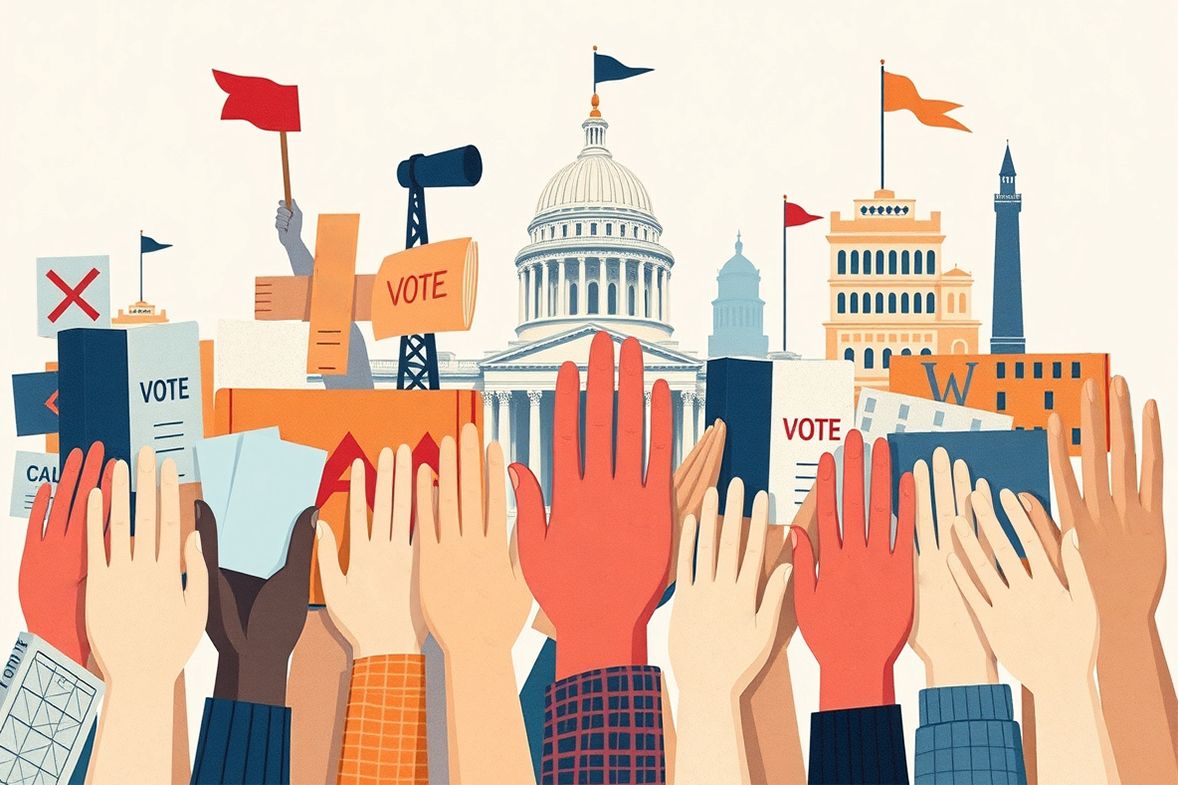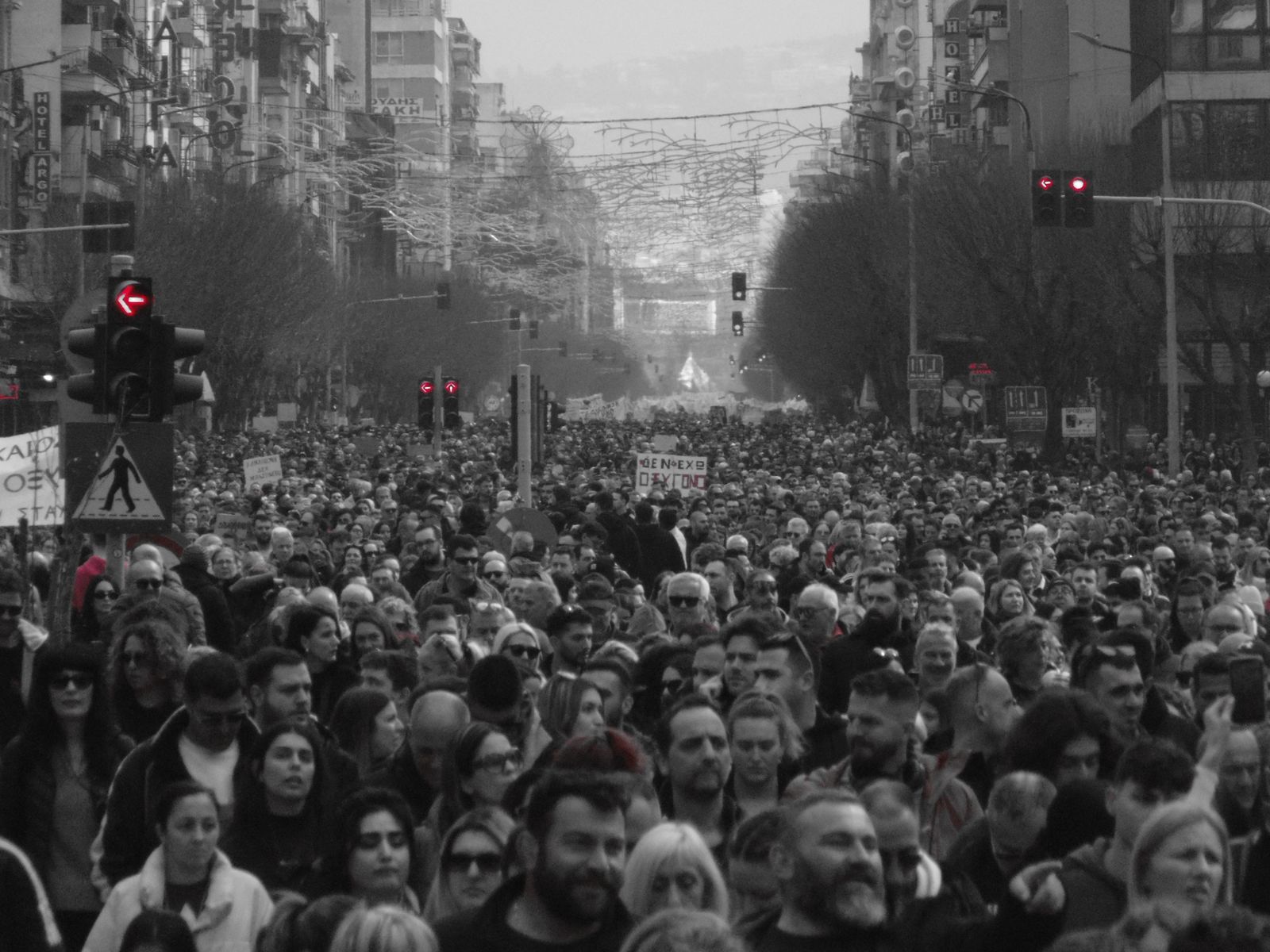Reflections on youth engagement in Politics : Insights and Alternatives
.jpeg)
Youth is recognized as a critical stage for political socialization and engagement. In Germany, this age group is actively shaping the political landscape. Interviews with young voters and a politician from the SPD reveal both a strong demand for political change and frustration with inadequate representation within existing institutions. Deliberative democracy, particularly through mechanisms such as citizens’ assemblies (Bürgerräte), offers a potential response.
Youth and Political Engagement : Voices Shaping Democracy
Youth, in a very general definition, is a period of life in between childhood and adulthood. It is described as a time of experimenting with roles and identities, still void of the burden of social norms and obligations, yet slowly preparing the youngsters for their lives as full members of the social collective (Valeska Henze, 2015). The people belonging to this group, aged 15-24, are reshaping the political landscape. Within their movements, young people are proving that their voices matter in the political spectrum from across the globe, from Serbia with the overthrowing of the government, all to the Burgerrate in Germany. A "Bürgerrat," or citizens' council, is a democratic deliberative body composed of ordinary citizens who are randomly selected to discuss a specific policy issue and develop recommendations. There are nearly 16 million people under the age of 20 living in Germany. A survey led by the Verian research institute found that the majority of young people in Germany see no point in becoming involved with politics. Less than one in five of the young people surveyed believed that they can make a difference to any cause through personal commitment, Are young people really involved in politics?
The Democratic Crisis, and the words of an SPD politician compared to the ones of young voters
The youth in Germany are deeply invested in politics, with 70% of them voting in the latest elections in February 2025, although the country is going through a democratic crisis, especially because of the rise of nationalism, the widespread democratic dissatisfaction, and the far right, i.e. AfD. We talked with Ahmed, a 16-year-old from Afghanistan, who shared some rather unexpected words. “I’d vote for the AfD, even though I am an immigrant myself”, he said. “The AfD is doing what other parties aren’t doing. That is, to change, to reshape and reform”. Mr. Lensch, the formal officer for the social affairs of Mainz, stated in his interview with Europe Convergence: “They stay the same, and that is attractive for many people”. Eckhart Lensch states that young people are concerned about the future, but they embrace change. We interviewed Nikolas, a 17-year-old student, who expressed his only fear for the future, AI. He himself said that he does not engage in politics since, and I quote: “I am too young, the average 17-year-old is not interested, politic does not affect us”. Eckhart said, “Those who do not want to engage is not their fault, but the problem is that when they do not vote, they lose the chance to participate.” The deepest foundation of our democratic crisis is our increasing human interdependence. But where does the widespread democratic dissatisfaction come from?

Arguably it is the consequence of a crisis of representation, for example of an inadequate representation of the citizens’ demands in the political system. The crisis of representation, in turn, may result from two sets of factors. “AfD in the moment, since they are not in any government, support ideas of not changing, without informing voters what they are going to do.” These factors are the result of a lack of responsiveness of the political system, most importantly of the party system, to new demands of the citizens. Their wishes are linked with their engagement, if they’re not met, then the political engagement stops. As Eckart Lensch, states, “Political engagement is divided into two branches. The first one is taking part in institutions, to see what has been done there and get access in them. The other is to work outside of the political institution but in cooperation with them. These are the most important decisions you can take to become more engaged.” While the political communication and participation activities of young adults are changing, this is often not adequately captured by research due to a too narrow conceptualization of the phenomenon, which may have painted an incomplete and inaccurate picture of young adults’ political engagement in the past (Vromen and Michael., 2015)
Broken trust, and a chance for democracy to be restored: Deliberate democracy and citizen assemblies
Citizens perceive a disconnection from their leaders, which fosters skepticism towards political systems. Young people between the ages of 18 and 24 leaned to the far ends of the political spectrum, showing how polarised the political landscape really is, casting their ballot more often for the far-right AfD. The SPD was the prime example of the polarisation, with the party only narrowly gaining a 12% of these elections. According to an exit poll by Infratest Dimap for the public broadcaster ARD, Die Linke won 25 percent of the youth vote, while the AfD captured 21 percent—making them the two strongest parties among young voters. For Die Linke, this marks a dramatic increase of 17 percentage points compared to the 2021 federal election. The results highlight the growing polarization in Germany, where many young voters see their only real choices at the far ends of the political spectrum.

Initiatives such as citizen assemblies could be the next go to for young people who want to make a difference in the political landscape. Deliberative democracy marks a significant break from the status quo, in which political participation is sometimes confined to casting a vote every few years. It proposes democratic injections in the existing democratic system. The Oxford Handbook of Deliberative Democracy (2018) defines deliberative democracy as “an ideal in which people come together, on the basis of equal status and mutual respect, to discuss the political issues they face and, on the basis of those discussions, decide on the policies that will then affect their lives”. With that said, deliberative democracy commits itself to including all voices and giving them equal importance. Rather than relying on “normal” debates, citizens assemblies promote team problem-solving and respectful dialogue. On the one hand there’s deliberative democracy, but based on that there is another concept, the one of citizen assemblies. Citizen assemblies are a key component of deliberative democracy, as they demonstrate this vision in action and cannot be undermined, though it is defined as a generic term for all participatory institutions which brings together a group of lay citizens who deliberate together on a public issue to exert a public influence (Min Reuchamps, Julien Vrydagh, Yanina Welp, 2023). In Germany’s case, the equivalent of citizen assemblies is the so called, Bürgerräte. More specifically, some topics these councils went over are intergenerationally, climate in politics, and citizen participation.
Text : George Rampotas/ Images : D.R. & Georges Rampotas
Vromen, A., Xenos, M. A., & Loader, B. D.(2015). Young people, social media and connective action: Fromorganisational maintenance to everyday political talk. Journal ofYouth Studies, 18(1), 80–100.
Bächtiger, A., Dryzek, J. S., Mansbridge, J., &Warren, M. E. (Eds.). (2018). The Oxford handbook of deliberativedemocracy. Oxford University Press.
Vrydagh, J. (2023). Citizens’ assemblies: Anintroduction. In M. Reuchamps, J. Vrydagh, & Y. Welp (Eds.), DeGruyter handbook of citizens’ assemblies (pp. 1–18). De Gruyter.
